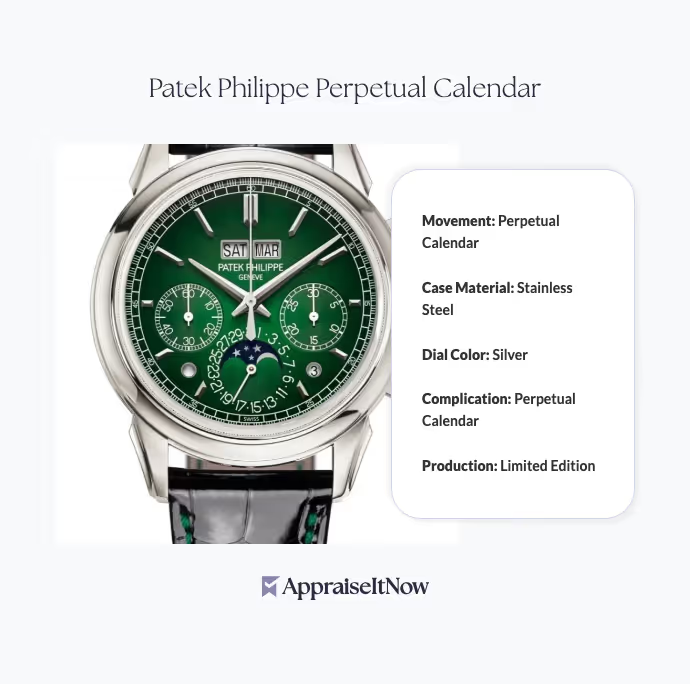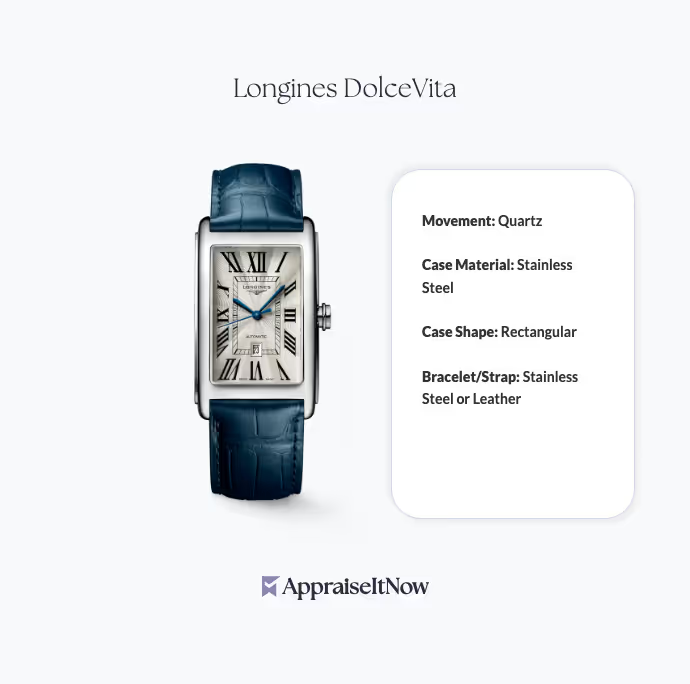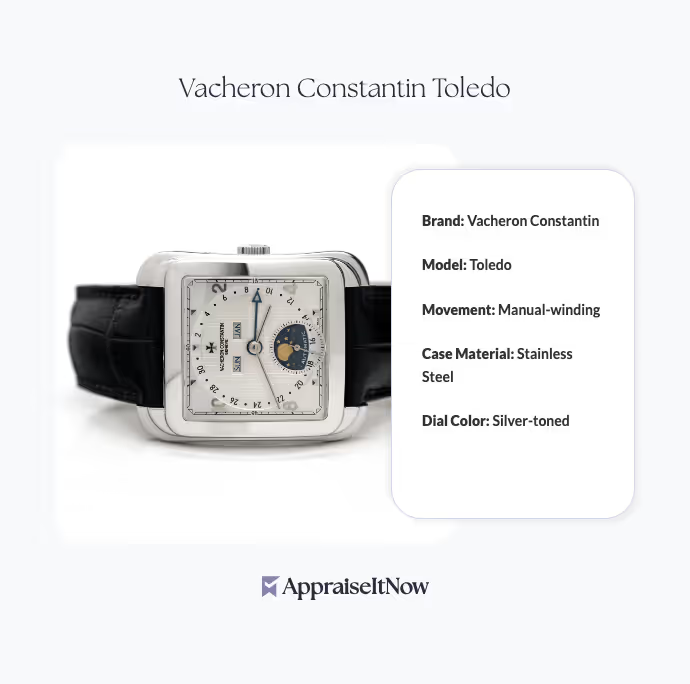<h1>How to Get Your Patek Philippe Perpetual Calendar Appraised</h1>
<p>If you own a Patek Philippe Perpetual Calendar or are considering acquiring one, understanding how to properly appraise this exceptional timepiece is crucial. These Swiss horological masterpieces—valued between <strong>$70,000 and $90,000</strong> depending on condition, provenance, and specific model—represent significant investment-grade assets that require expert evaluation. Whether you need valuation for insurance, estate planning, or a potential sale, a professional appraisal ensures you understand the true worth of your acquisition.</p>
<h2>Why Patek Philippe Perpetual Calendars Command Premium Valuations</h2>
<p>The Patek Philippe Perpetual Calendar stands apart in the watch collecting world due to its extraordinary mechanical complexity and heritage. Introduced in 1941, this iconic timepiece features a perpetual calendar complication that automatically adjusts for varying month lengths, including leap years, without manual intervention. This engineering feat alone distinguishes it from thousands of other luxury watches, positioning it among the most desirable timepieces ever created.</p>
<p>What makes a perpetual calendar so expensive? The answer lies in the hundreds of precisely engineered components working in perfect harmony. When you compare perpetual calendar watches across the luxury market, the Patek Philippe consistently commands the highest prices due to its unmatched reputation for accuracy and craftsmanship. The watch can maintain accurate date displays for decades with minimal correction, a testament to Patek Philippe's legendary technical mastery.</p>
<div class="callout tip"><p><strong>Collector's Insight</strong></p>
<p>Patek Philippe Perpetual Calendars with documented ownership history from renowned figures or celebrities can command significant premiums—sometimes 15-25% above comparable examples with standard provenance.</p></div>
<h2>Understanding Patek Philippe's Position in the Luxury Watch Hierarchy</h2>
<p>When collectors debate whether Patek Philippe ranks higher than Rolex in terms of prestige and value, the perpetual calendar models provide clear evidence of Patek Philippe's superior positioning. While both brands manufacture exceptional timepieces, Patek Philippe's complex complications and limited production volumes create greater scarcity and investment potential. The brand's motto—"You never actually own a Patek Philippe. You merely look after it for the next generation"—reflects the generational value these watches maintain.</p>
<p>This cultural cachet directly impacts appraisal values. Unlike more accessible luxury watches, Patek Philippe perpetual calendars function as <a href="/types/personal-property">personal property</a> assets comparable to fine art or vintage automobiles. Understanding this positioning helps when seeking appraisal services, as you'll want specialists familiar with <a href="/types/jewelry">jewelry and watch appraisals</a> at the highest levels of the market.</p>
<h2>Key Factors That Influence Your Perpetual Calendar's Value</h2>
<p>When evaluating your specific Patek Philippe Perpetual Calendar, several technical and historical elements determine where it falls within the $70,000-$90,000 range. The reference number tells much of the story—vintage perpetual calendars from the original 1941 production run command dramatically different values than more recent releases, with significant variations based on whether yours features the original chronograph complication, moonphase display, or other additional features.</p>
<p>The case material significantly impacts valuation. Yellow gold examples maintain strong values, white gold pieces appeal to modern collectors, and platinum perpetual calendars represent the pinnacle of Patek Philippe collecting, often exceeding the standard valuation range. Reference 5970 models, for instance, have become legendary among serious collectors and frequently trade well above the stated estimate depending on condition and provenance.</p>
<div class="callout note"><p><strong>Condition Matters</strong></p>
<p>Original dial condition, luminous material preservation, and factory case finish directly affect your watch's market value. Professional appraisers examine these elements through magnification to assess originality and wear.</p></div>
<h2>Establishing Provenance and Documentation</h2>
<p>Your watch's documentation history significantly influences its appraisal value. Original purchase receipts from authorized Patek Philippe retailers, warranty cards, and service records from official Patek Philippe dealers substantially increase valuation credibility. When professional appraisers evaluate <a href="/types/memorabilia-and-collectibles">memorabilia and collectibles</a> of this caliber, comprehensive provenance documentation often justifies premiums of 10-20% above undocumented examples.</p>
<p>If you've inherited your perpetual calendar or purchased it from a private collector, gathering whatever documentation exists becomes your first priority. Original boxes, hang tags, and instruction booklets add modest value premiums, though the movement's condition and case integrity remain primary valuation drivers. Professional appraisers help authenticate documentation and assess its impact on your specific piece's valuation.</p>
<h2>When to Seek Professional Appraisal Services</h2>
<p>Understanding how much a Patek Philippe perpetual calendar costs in the current market—and where your specific example fits—requires expert evaluation. You should pursue professional appraisal when acquiring the watch, particularly if purchasing from private sellers or auction houses where transparent documentation may be limited. Estate situations also necessitate certified valuations, as beneficiaries need accurate asset values for distribution purposes and tax documentation.</p>
<p>Insurance represents another crucial driver for seeking professional assessment. Luxury watch insurance requires certified appraisals detailing the specific model, movement characteristics, condition assessment, and current market value. Unlike basic homeowner's policies, specialized <a href="/blog/everything-you-need-to-know-about-jewelry-appraisals">jewelry appraisal</a> documentation protects your perpetual calendar through agreed-value coverage, ensuring you receive accurate replacement value if loss occurs.</p>
<h2>The Investment Perspective and Market Dynamics</h2>
<p>Many collectors ask whether perpetual calendar watches represent worthwhile investments beyond personal enjoyment. The data suggests yes—authenticated Patek Philippe perpetual calendars have demonstrated consistent appreciation over decades, with certain reference numbers showing annual growth rates of 5-8% or higher. This performance significantly outpaces traditional investment vehicles and rivals fine art appreciation for equivalent monetary values.</p>
<p>However, investment success depends heavily on proper acquisition, maintenance, and documentation. Watches purchased at retail prices significantly below secondary market values may show limited appreciation, while extremely rare references acquired intelligently can return 100%+ over 5-10 year holding periods. Understanding these dynamics—and your specific watch's position within them—becomes essential when planning long-term asset allocation. Our resources on <a href="/blog/appraising-luxury-watches-determining-the-value-of-timepiece-investments">appraising luxury watches</a> provide deeper insight into investment dynamics and <a href="/blog/what-you-need-to-know-about-rare-watch-appraisals">rare watch appraisals</a>.</p>
<div class="callout tip"><p><strong>Smart Collecting</strong></p>
<p>Track your watch's condition and market comparables annually. If values decline unexpectedly, professional appraisers can identify specific condition issues affecting valuation and recommend remediation.</p></div>
<h2>What Happens to Perpetual Calendar Watches After 2100?</h2>
<p>A frequently asked question among perpetual calendar owners concerns the watch's functionality after the year 2100. Patek Philippe's original perpetual calendar design requires manual date correction at this milestone due to calendar algorithms that account for leap year patterns through 2100. This limitation doesn't diminish current values but represents an important consideration for collectors thinking generationally—addressing the brand's own philosophy about stewardship across generations.</p>
<h2>Working With Certified Appraisers</h2>
<p>When selecting an appraiser for your Patek Philippe Perpetual Calendar, seek professionals holding credentials from organizations like AAA, ISA, ASA, CAGA, or AMEA—the same standards that AppraiseItNow maintains across its network. These certified experts combine horological knowledge with formal appraisal training, ensuring valuations meet USPAP standards and withstand professional scrutiny from insurance companies, estate attorneys, or potential buyers.</p>
<p>The appraisal process typically involves detailed condition assessment, reference verification, movement examination, and comparative market analysis based on recent comparable sales. Professional appraisers request contemporary documentation, examine the watch under magnification, and provide detailed written reports suitable for insurance coverage, legal proceedings, or transactional purposes. This comprehensive approach ensures your appraisal reflects both current market conditions and your specific watch's unique characteristics.</p>
<div class="callout note"><p><strong>Key Takeaway</strong></p>
<p>A certified appraisal of your Patek Philippe Perpetual Calendar provides authoritative documentation of its $70,000-$90,000 value range, ensuring accurate insurance coverage, informed decision-making in buying or selling scenarios, and confidence in this significant asset's true worth. Professional evaluation transforms ownership uncertainty into documented confidence, protecting both your investment and preserving the legacy of this horological masterpiece for future generations.</p></div>
















